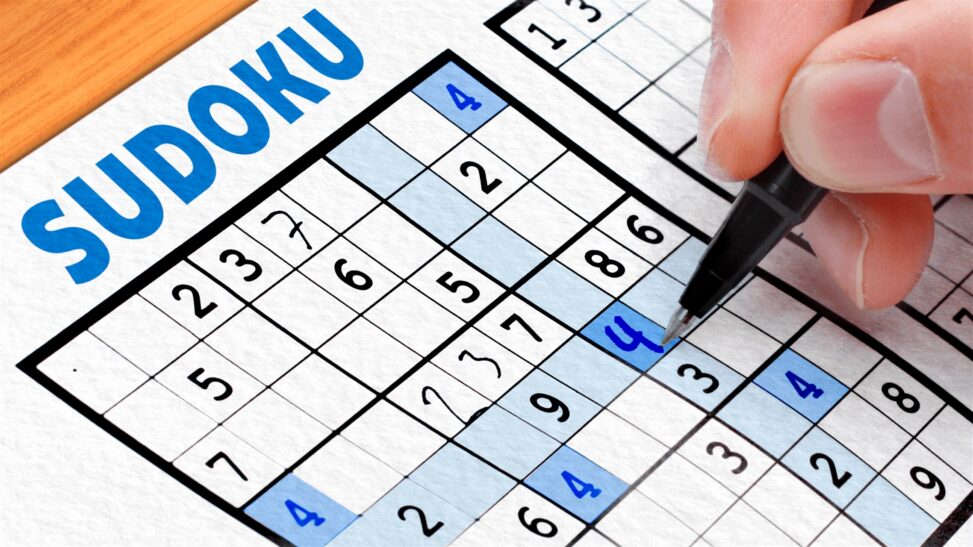There’s something weirdly satisfying about staring at a blank grid of numbers and thinking, “This time, I’ve got you.” That’s what I tell myself every single time I open a sudoku puzzle. It starts as a quiet, innocent challenge—just a few empty boxes, some numbers already filled in, and a promise that, if I’m patient and logical enough, I’ll figure it all out.
And yet, ten minutes later, I’m usually questioning all my life choices.
The First Encounter
I still remember the first time I stumbled upon Sudoku. It was years ago, on a flight from Bangkok to Tokyo. The airline magazine had one of those “fun activities” pages in the back, and among the crossword puzzles and word searches, there it was: a mysterious 9×9 grid with numbers scattered across it like a math problem gone wrong.
At first glance, I thought, “Nah, not for me.” Numbers? Logic? No thanks, I just wanted to nap. But boredom is a powerful motivator, especially when you’re stuck in the air with no Wi-Fi.
So I gave it a shot.
Within minutes, I was hooked. There was something hypnotic about it—the way everything had to fit, the strange balance of intuition and structure. I loved how every single number felt like a small victory, like uncovering a secret hidden in plain sight.
By the time we landed, I hadn’t solved it completely—but I was close. And more importantly, I was obsessed.
Why Sudoku Feels So Addictive
If you’ve ever played Sudoku, you know it’s not about math at all. It’s about logic, patterns, and that quiet little click your brain makes when something falls into place. Each puzzle starts off as chaos, but with patience, you start seeing order emerge.
It’s like untangling a set of headphones (you know, the old wired ones). Frustrating at first, but deeply rewarding when you finally get it right.
What surprised me most was how meditative it could be. I never thought of myself as a patient person. But when I’m sitting with a Sudoku grid, I can spend hours lost in thought—no music, no notifications, just me, a pencil, and the quiet hum of my brain working things out.
Sometimes it’s like I forget the world exists. I’ll look up from a puzzle and realize two hours have passed. My coffee’s cold, my phone’s full of unread messages, but somehow, my mind feels cleaner—like I’ve decluttered it just by solving something small.
When Sudoku Gets Personal
Fast-forward a few years, and Sudoku became part of my daily routine. I’d play it during coffee breaks, while waiting for a bus, even before bed. It wasn’t just a pastime anymore—it was my go-to stress reliever.
One evening stands out in particular. I’d had one of those long, miserable workdays where nothing seemed to go right. I came home, threw my bag on the floor, and just… sat. My mind was noisy—emails, deadlines, that awkward conversation with my boss replaying over and over.
Then, without really thinking, I opened my Sudoku app.
The puzzle was labeled “Expert,” which normally would’ve scared me off. But that night, I didn’t care. I started filling in boxes. Slowly, methodically. I wasn’t trying to win; I was just trying to breathe.
About thirty minutes in, something shifted. I noticed patterns. I started catching mistakes and correcting them. The more I focused on the puzzle, the quieter my mind became. It was like all that frustration had been poured into the grid. When I finally placed the last number, I felt this tiny burst of joy—pure and simple.
It wasn’t about finishing a puzzle anymore; it was about finding peace in structure.
The Sweet Taste of Completion
Solving a tough Sudoku puzzle is oddly emotional. It’s not like winning a game or getting a high score—it’s more personal. There’s this quiet pride in knowing you figured it out.
I’ve had moments where I’d been stuck for what felt like forever, staring at the same stubborn 3×3 square, trying to figure out where the “4” goes. And then suddenly, it hits you. That one missing link, the number that unlocks the entire grid. It’s like magic.
You can almost hear your brain whisper, “See? Told you we’d get there.”
And when you finally fill in that last box? Oh, that’s pure bliss. You lean back, smile, and maybe even take a screenshot if you’re a little proud (guilty as charged).
My Funniest Sudoku Fail
Of course, not every session is so Zen. I’ve had plenty of Sudoku disasters.
Once, I was so sure I’d cracked a “Hard” level puzzle. Everything seemed perfect—every row, every column neatly balanced. Then I realized I had two fives in the same subgrid. Just like that, my perfect puzzle crumbled.
I remember staring at it in disbelief, muttering, “No way.” I had to backtrack nearly twenty steps, erasing half my progress. It was humbling, to say the least.
But that’s part of the fun, isn’t it? Sudoku has this sneaky way of keeping you humble. It reminds you that logic is unforgiving—and that a single misplaced number can ruin everything.
Little Lessons from a Number Puzzle
The more I play, the more I realize Sudoku isn’t just a brain game. It’s a lesson in patience, attention, and persistence.
You can’t rush it. You can’t force an answer to fit just because you want it to. You have to slow down, trust the process, and let the logic guide you.
It’s funny how much that mirrors real life. Whenever I’m feeling overwhelmed or stuck, I try to remember how I approach Sudoku: one square at a time, one possibility at a time, no shortcuts.
Sometimes the answer is right there—you just haven’t looked at it from the right angle yet.

Provide Feedback